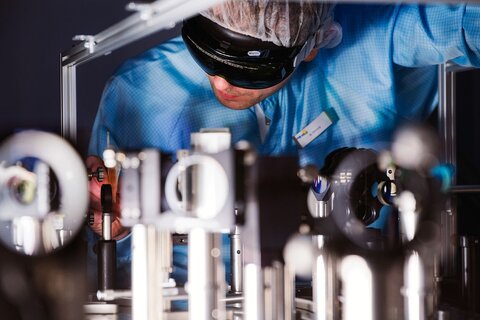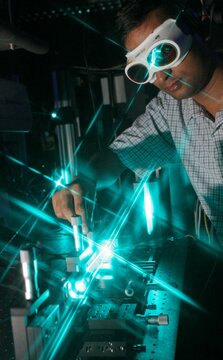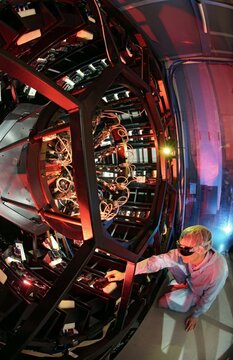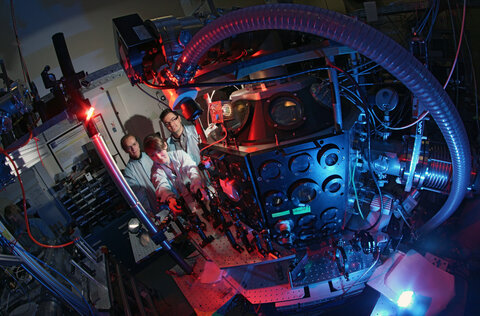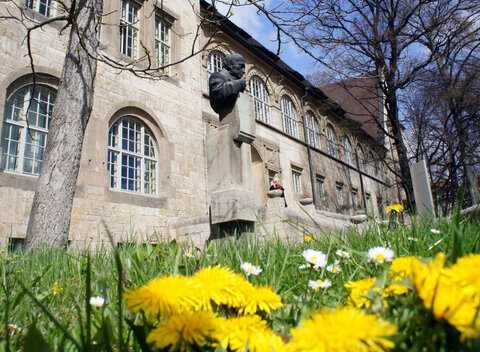Research in Jena
Jena has a population of about 110,000 people and is the high-tech center of the German state of Thuringia. The city has a longstanding tradition in basic research and higher education, as well as a renowned technology-based industry. The University of Jena (Friedrich-Schiller-Universität, FSU) was established in 1558 and is counted among the ten oldest universities in Germany. Today, together with the University of Applied Sciences of Jena (Ernst-Abbe-Fachhochschule, EAH) nearly 25,000 university students are enrolled in the Jena universities.
In the second half of the 19th century, the industrial development of Jena was significantly propelled by the work of three scientific and economic visionaries, namely Carl Zeiss, Otto Schott and Ernst Karl Abbe. Their cooperation led to the creation of the world-famous Carl Zeiss factories and the Jena “Schott und Genossen” glass factories. Such cooperation between research institutes and economic enterprises have proven its value all the way up to the present day and justifies Jena’s reputation as a high-technology location. Currently, about 4,500 scientists are working at the various university institutes, research centers and R&D departments located in the city of Jena.
Non-University Research Institutes in Jena:
- Fraunhofer Institute for Applied Optics and Precision Engineering (IOF)
- Max Planck Institute for Biogeochemistry
- Leibniz Institute on Aging – Fritz Lipmann Institute (FLI)
- Institute of Photonic Technology (IPHT)
- Max Planck Institute for Chemical Ecology
- Günter Köhler Institute for Joining Technology and Material Testing
- Leibniz Institute for Natural Product Research and Infection Biology – Hans Knöll Institute (HKI)
- Federal Research Institute for Animal Health – Friedrich Löffler Institute (FLI)
- INNOVENT Technology Development Jena
- Max Planck Institute for the Science of Human History
- Deutsches Zentrum für Luft- und Raumfahrt - Institute Data Science
